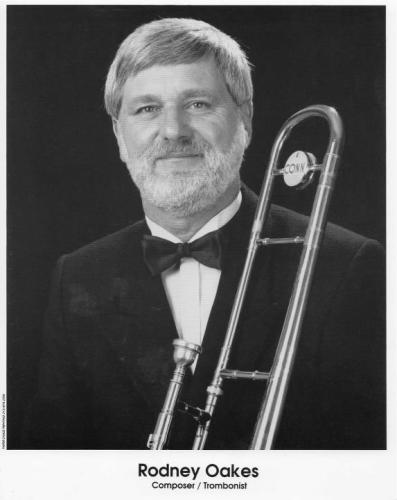First Album Resurrection

Rodney Oakes reviewed Michael Robinson's first three albums and interviewed Robinson on his radio show several times.
I was aghast hearing from composer Rodney Oakes how he had submitted a review of my 1991 first album, Trembling Flowers, to Journal SEAMUS, and was surprised it wasn’t published. Rodney disclosed this to me during a phone conversation around 2012, after I thanked him again for inspiring reviews of my second and third albums, Fire Monkey and Hamoa, both published in Journal SEAMUS. Additionally, Oakes, whose middle name is Harland, interviewed me several times on his KXLU FM radio show in Los Angeles. Contacting Barry Schrader, who was the editor of Journal SEAMUS at the time, he said the review was never received, and that he would have published it as he did the subsequent reviews. And because this was before email was commonly used, not to mention several computer generations ago, Rodney doesn't have a copy of the review, and so it's apparently lost forever. Fortunately, tracks on the Trembling Flowers album were played on WBAI FM in Manhattan and KPFK FM in Los Angeles. La Monte Young heard the NYC broadcast and was so excited by the music he left a message on my answering machine, and when I phoned him back we spoke for over three hours. Just a few weeks ago, I thought to email an early champion of my music who also became a friend, and was devastated to learn Peter Jablonski had passed away last September. Rereading one of the letters he sent me, I realized part of it amounts to an extremely insightful and relevant review of Trembling Flowers. Here it is: "I finally got to listen to your recording. It sounds great. I seem to enjoy it more with each listening - noticing things I missed before. Here are some thoughts on the music, in no particular order." Composers are truly blessed upon receiving this level of thought and insight into their music. Just a few months ago, I found the comments just below on Bandcamp about my first album from someone named "bccl": "wonderful, sometimes astonishing private press electronic music ranging from the whimsical (gift) to the meditative/affecting (delayed response). an incredible find. Favorite track: Delayed Response." (bccl) Indeed, after playing Delayed Response live in the studio before the Trembling Flowers album was released, on Imaginary Landscape hosted by composer Carl Stone, I learned two men driving on the 405 Freeway were so moved by the music they had taken the nearest exit so they could phone into the station and write down the title and artist name. To this day, I would not change a single note or coloristic-expressive detail on the Trembling Flowers album, the realizations of my compositions capturing a moment in time reflected by the meruvina configuration of that period. To learn more about the music, including how Lee Konitz enjoyed playing along with one of the tracks that he compared to Count Basie, how Ray Manzarek liked it enough to first invite me to lunch and then to his home many times, and how Sadami Wada, the Vice Chairman of Sony Corporation, loved the title track, you are invited to visit the Trembling Flowers page. - Michael Robinson, June 2020, Los Angeles
© 2020 Michael Robinson All rights reserved
Michael Robinson is a Los Angeles-based composer, programmer, pianist and musicologist. His 199 albums include 152 albums for meruvina and 47 albums of piano improvisations. Robinson has been a lecturer at UCLA, Bard College and California State University Long Beach and Dominguez Hills.
|